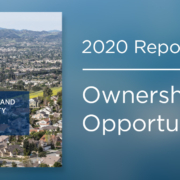Nobody Wants to Leave Houston!
This week’s feature is a followup on my proposal that Metro considering going fareless. The NY Times even did an article on more transit agencies considering and going fareless to increase ridership. Metro’s been studying it and had their first results at a meeting this month. If you’d like to watch the presentation, it starts around the 30m mark in the video here, or the Chronicle summarizes their findings here. The bottom line is that – although the loss of $70m of annual fares might be manageable – there are two major problems:
- Providing additional buses and drivers to handle the additional demand of a 36% increase in ridership from going fareless could cost up to $170m a year on top of Metro’s roughly $700m budget, and they simply can’t afford that.
- The safety risks are substantial with “problem riders”, which have been an issue when other agencies have gone fareless.
I was impressed with Metro’s thorough analysis of six different scenarios, and satisfied that they came to the right (albeit unfortunate) conclusions. I agree that the cost and safety concerns are just too high for most of the scenarios they analyzed. They are still analyzing additional scenarios and I have suggested it would be interesting to add a scenario with a fixed-price unlimited monthly pass, including for Park-and-Ride riders. I’m not sure what the right price point would be – maybe at the equivalent of two local rides a day? – so $2.50 x 30 days = $75/month? I think that could get a substantial boost in ridership (especially Park-and-Ride commuters) without the safety concerns or major loss of revenue. We’ll see what comes back…
Moving on to some additional items this week:
- Reason did their own piece critiquing Texas Monthy’s article on an absurd study asserting New York is more affordable than Houston, and even quotes my post! Economics21 has one as well that has a solid analysis and a great conclusion:
“Texas Monthly told a story that a lot of people wanted to hear: loosely regulated housing markets like Houston have long embarrassed ideological opponents of free markets who insist that only rent controls and massive public subsidies can provide affordable housing. There is a ready audience for the argument that Houston’s affordability is a mirage. If you ever find an argument like this tempting, though, ask yourself: is it more likely that you’re mistaken, or that the millions of Americans voting with their feet are?”
- Nobody wants to leave Houston! Well, I might be exaggerating a bit, but this CityLab piece shows Houston as the 9th most popular city for inbound apartment searches, but doesn’t even make the top 20 for outbound apartment searches (which does include both Dallas and San Antonio). And Houston and Miami were the only top ten metros not on the outbound list – not bad company! I think that’s a really nice sign for your city when there’s a lot more inbound interest than outbound, even with the oil bust.
- Houston could see second-biggest population surge in U.S. through 2029, study says
- The 16th Annual Demographia International Housing Affordability Survey: 2020 is out, and Houston yet again scores a very affordable 3.6 ration between median home prices and incomes (best in the Texas Triangle), as opposed to much crazier numbers on the coasts and around the world. The absolute worst/most expensive? Hong Kong with a ratio of almost 21! New Geography overview here.
- I’m excited to see the Greater Houston Partnership get behind working on the low-carbon energy transition. This is something Houston really needs to get right for its future, especially pushing carbon sequestration technologies. Check out the pretty cool video below; click to play.:
Tory Gattis is a Founding Senior Fellow with the Center for Opportunity Urbanism and co-authored the original study with noted urbanist Joel Kotkin and others, creating a city philosophy around upward social mobility for all citizens as an alternative to the popular smart growth, new urbanism, and creative class movements. He is also an editor of the Houston Strategies blog.








